
 +91-22-48913909
+91-22-48913909
Table of Contents
- Why to Invest in Equity Funds?
- Equity NAV
- Top Equity Mutual Funds 2025
- 5 Best Large Cap Equity Mutual Funds
- 5 Best Mid Cap Equity Mutual Funds
- 5 Best Small Cap Equity Mutual Funds
- 5 Best Large & Mid Cap Equity Mutual Funds
- 5 Best Equity Linked Savings Schemes (ELSS)
- 5 Best Diversified/Multi Cap Equity Mutual Funds
- 5 Best Sector Equity Mutual Funds
- 5 Best Focused Equity Funds
- 5 Best Dividend Yield Equity Funds
- 5 Best Value Equity Funds
- Smart Tips to Choose Best Equity Funds for 2025
- Equity Fund Taxation
- How to Invest in Best Equity Mutual Funds Online?
- Conclusion
Top 6 Funds
Best Equity Mutual Funds 2025 - 2026
An equity fund is a mutual fund that invests principally in stocks. It can be actively or passively (index fund) managed. These are also known as stock funds.
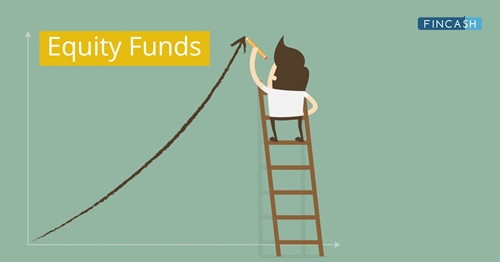
Equity Funds should be the vehicle of choice when Investing for long-term goals as they have created huge profits for investors in the past few years. But as there is a wide choice before investors, choosing the right equity fund becomes critical.
With right qualitative and quantitative measures (discussed below), one can ideally choose the best equity Mutual Funds to invest.
Why to Invest in Equity Funds?
1. Liquidity
Since stocks are actively traded across all major exchanges, every day, this makes equity funds a highly liquid investment. It provides investors, the convenience of buying and selling their stocks depending on the Market situation. By investing in equity mutual funds, the money is usually credited to your Bank account in 3 days.
2. Dividend Income
Investing into blue-chip companies may help investors earn a steady Income in the form of dividends. A majority of such companies usually pay out regular dividends even in volatile market conditions, typically paid quarterly. Having a diversified Portfolio can provide investors with a steady dividend income in the year.
3. Portfolio Diversification
With best equity mutual funds investors can diversify their portfolio through regularly investing. It means that they can invest in stocks of different economic sectors. So, even if a particular stock drops in value, the others may help investors make up for that loss depending on the market situation.
4. Ideal Investment Vehicle
In many ways, equity funds are ideal investment vehicles for investors that are not as well-versed in financial investing or do not possess a large amount of Capital with which to invest. They are practical investments for most people.
The attributes that make equity funds most suitable for small individual investors are the reduction of risk resulting from a fund's portfolio diversification and the relatively small amount of capital required to acquire shares of an equity fund. A large amount of investment capital would be required for an individual investor to achieve a similar degree of risk reduction through diversification of a portfolio of direct stock holdings. Pooling small investors capital allows an equity fund to diversify effectively without burdening each investor with large capital requirements.
Equity NAV
The price of the equity fund is based on the fund's net asset value (NAV) less its liabilities. A more diversified fund means that there is less negative effect of an individual stock's adverse price movement on the overall portfolio and on the share price of the equity fund.
Equity funds are managed by experienced professional portfolio managers, and their past performance is a matter of public record. Transparency and reporting requirements for equity funds are heavily regulated by the Security Exchange Board of India (SEBI)
Talk to our investment specialist
Top Equity Mutual Funds 2025
Best equity mutual funds are categorised according to its types- ELSS, Large cap funds, mid cap funds, Small cap funds, Diversified Funds, sector funds and Balanced Fund.
5 Best Large Cap Equity Mutual Funds
Fund NAV Net Assets (Cr) 3 MO (%) 6 MO (%) 1 YR (%) 3 YR (%) 5 YR (%) 2023 (%) Nippon India Large Cap Fund Growth ₹80.9268
↑ 1.28 ₹34,212 -4.1 -9.5 0.7 16 26 18.2 DSP BlackRock TOP 100 Equity Growth ₹438.514
↑ 6.63 ₹4,519 -0.9 -6.4 9.1 15.6 21.5 20.5 ICICI Prudential Bluechip Fund Growth ₹100.09
↑ 1.52 ₹60,177 -2 -8.1 2.7 14.5 24.2 16.9 HDFC Top 100 Fund Growth ₹1,047.18
↑ 20.09 ₹33,913 -2.7 -9.7 -0.2 13.6 23.6 11.6 BNP Paribas Large Cap Fund Growth ₹200.693
↑ 3.16 ₹2,263 -5.2 -12.7 -0.7 12.7 20.4 20.1 Note: Returns up to 1 year are on absolute basis & more than 1 year are on CAGR basis. as on 11 Apr 25
5 Best Mid Cap Equity Mutual Funds
Fund NAV Net Assets (Cr) 3 MO (%) 6 MO (%) 1 YR (%) 3 YR (%) 5 YR (%) 2023 (%) Edelweiss Mid Cap Fund Growth ₹87.115
↑ 1.65 ₹7,729 -9.4 -14.5 8.6 19.1 32.3 38.9 Invesco India Mid Cap Fund Growth ₹148.09
↑ 2.69 ₹5,247 -10.3 -13.1 11 18.9 29 43.1 L&T Midcap Fund Growth ₹325.888
↑ 8.15 ₹9,541 -13.4 -20.6 -0.8 16 25.7 39.7 TATA Mid Cap Growth Fund Growth ₹377.804
↑ 4.97 ₹3,955 -8 -14.7 -0.9 15.1 26.9 22.7 ICICI Prudential MidCap Fund Growth ₹246.49
↑ 6.41 ₹5,394 -9.1 -17.2 -1 14.6 29.3 27 Note: Returns up to 1 year are on absolute basis & more than 1 year are on CAGR basis. as on 11 Apr 25
5 Best Small Cap Equity Mutual Funds
Fund NAV Net Assets (Cr) 3 MO (%) 6 MO (%) 1 YR (%) 3 YR (%) 5 YR (%) 2023 (%) Nippon India Small Cap Fund Growth ₹148.156
↑ 3.53 ₹50,826 -11.1 -18.1 0.2 18.3 38.1 26.1 Franklin India Smaller Companies Fund Growth ₹150.917
↑ 3.94 ₹11,257 -11.4 -17.5 -2.8 17.7 33.4 23.2 HDFC Small Cap Fund Growth ₹118.013
↑ 2.48 ₹28,120 -11.8 -16.5 -4.8 16 34.1 20.4 IDBI Small Cap Fund Growth ₹27.5443
↑ 0.77 ₹434 -15.1 -18.6 4.8 14.8 32.2 40 Sundaram Small Cap Fund Growth ₹223.995
↑ 6.90 ₹2,763 -10.1 -16.6 -1.7 14.3 31.7 19.1 Note: Returns up to 1 year are on absolute basis & more than 1 year are on CAGR basis. as on 11 Apr 25
5 Best Large & Mid Cap Equity Mutual Funds
Fund NAV Net Assets (Cr) 3 MO (%) 6 MO (%) 1 YR (%) 3 YR (%) 5 YR (%) 2023 (%) Principal Emerging Bluechip Fund Growth ₹183.316
↑ 2.03 ₹3,124 2.9 13.6 38.9 21.9 19.2 IDFC Core Equity Fund Growth ₹119.106
↑ 2.11 ₹7,234 -5.2 -12 5.2 19.3 28.5 28.8 ICICI Prudential Large & Mid Cap Fund Growth ₹910.07
↑ 15.33 ₹17,818 -1.2 -7.6 6.3 18 29.6 20.4 Invesco India Growth Opportunities Fund Growth ₹85.23
↑ 1.50 ₹5,930 -7.5 -12.2 9.2 17.9 24.3 37.5 UTI Core Equity Fund Growth ₹160.072
↑ 2.66 ₹3,789 -5.7 -11.9 6 17.4 28.5 27.2 Note: Returns up to 1 year are on absolute basis & more than 1 year are on CAGR basis. as on 31 Dec 21
5 Best Equity Linked Savings Schemes (ELSS)
Fund NAV Net Assets (Cr) 3 MO (%) 6 MO (%) 1 YR (%) 3 YR (%) 5 YR (%) 2023 (%) IDBI Equity Advantage Fund Growth ₹43.39
↑ 0.04 ₹485 9.7 15.1 16.9 20.8 10 SBI Magnum Tax Gain Fund Growth ₹395.409
↑ 6.83 ₹25,724 -5.3 -11 2.6 20.6 28.6 27.7 HDFC Long Term Advantage Fund Growth ₹595.168
↑ 0.28 ₹1,318 1.2 15.4 35.5 20.6 17.4 HDFC Tax Saver Fund Growth ₹1,279.34
↑ 20.35 ₹14,671 -1.8 -7.1 7.5 19.1 27.7 21.3 Motilal Oswal Long Term Equity Fund Growth ₹43.5755
↑ 1.30 ₹3,405 -16.5 -21.4 1.5 18.9 25 47.7 Note: Returns up to 1 year are on absolute basis & more than 1 year are on CAGR basis. as on 28 Jul 23
5 Best Diversified/Multi Cap Equity Mutual Funds
Fund NAV Net Assets (Cr) 3 MO (%) 6 MO (%) 1 YR (%) 3 YR (%) 5 YR (%) 2023 (%) JM Multicap Fund Growth ₹89.401
↑ 1.88 ₹4,899 -10.2 -16.2 0.7 19.8 26.8 33.3 HDFC Equity Fund Growth ₹1,811.46
↑ 30.18 ₹64,124 -0.7 -5.2 10.1 19.6 30.4 23.5 Nippon India Multi Cap Fund Growth ₹261.214
↑ 5.00 ₹35,353 -6.3 -13.9 2.3 18.8 31 25.8 Motilal Oswal Multicap 35 Fund Growth ₹54.2453
↑ 0.92 ₹11,172 -10.9 -14.5 8.7 17.7 21.3 45.7 BNP Paribas Multi Cap Fund Growth ₹73.5154
↓ -0.01 ₹588 -4.6 -2.6 19.3 17.3 13.6 Note: Returns up to 1 year are on absolute basis & more than 1 year are on CAGR basis. as on 11 Apr 25
5 Best Sector Equity Mutual Funds
Fund NAV Net Assets (Cr) 3 MO (%) 6 MO (%) 1 YR (%) 3 YR (%) 5 YR (%) 2023 (%) UTI Healthcare Fund Growth ₹260.151
↑ 5.90 ₹1,057 -8.8 -10.2 15.6 17.6 22.1 42.9 SBI Healthcare Opportunities Fund Growth ₹393.542
↓ -2.08 ₹3,313 -10 -7.2 12.6 20.6 24 42.2 SBI Banking & Financial Services Fund Growth ₹37.8275
↑ 0.61 ₹6,475 3.8 -0.2 10.5 15.3 22.6 19.6 TATA India Pharma & Healthcare Fund Growth ₹28.0529
↑ 0.59 ₹1,104 -8.3 -10.5 10.3 17.2 21.5 40.4 TATA Banking and Financial Services Fund Growth ₹39.1679
↑ 0.61 ₹2,285 5.8 -1.1 10.2 15.8 21.1 9 Note: Returns up to 1 year are on absolute basis & more than 1 year are on CAGR basis. as on 11 Apr 25
5 Best Focused Equity Funds
Fund NAV Net Assets (Cr) 3 MO (%) 6 MO (%) 1 YR (%) 3 YR (%) 5 YR (%) 2023 (%) HDFC Focused 30 Fund Growth ₹209.978
↑ 3.49 ₹15,516 -0.3 -4.9 10.8 20.2 30.3 24 ICICI Prudential Focused Equity Fund Growth ₹81.6
↑ 1.23 ₹9,533 -0.9 -8.8 7.6 18.1 27 26.5 Sundaram Select Focus Fund Growth ₹264.968
↓ -1.18 ₹1,354 -5 8.5 24.5 17 17.3 DSP BlackRock Focus Fund Growth ₹49.788
↑ 0.92 ₹2,259 -3.1 -10.3 9.5 14.3 21.6 18.5 Franklin India Focused Equity Fund Growth ₹96.5177
↑ 1.54 ₹10,907 -4.9 -12.2 -0.4 13.2 25.3 19.9 Note: Returns up to 1 year are on absolute basis & more than 1 year are on CAGR basis. as on 11 Apr 25
5 Best Dividend Yield Equity Funds
Fund NAV Net Assets (Cr) 3 MO (%) 6 MO (%) 1 YR (%) 3 YR (%) 5 YR (%) 2023 (%) ICICI Prudential Dividend Yield Equity Fund Growth ₹48.19
↑ 0.85 ₹4,575 -0.4 -8.6 4.6 19.7 32.6 21 Aditya Birla Sun Life Dividend Yield Fund Growth ₹397.2
↓ -2.26 ₹1,339 -10.2 -18 -3.1 15 25.5 18.2 Templeton India Equity Income Fund Growth ₹127.065
↓ -0.63 ₹2,201 -7 -13.6 -0.8 14 28.8 20.4 UTI Dividend Yield Fund Growth ₹159.337
↑ 2.60 ₹3,633 -6.4 -13.8 6.4 13.8 24.2 24.7 Principal Dividend Yield Fund Growth ₹125.505
↑ 2.16 ₹806 -4.9 -11.8 -1.4 13 22.8 15.7 Note: Returns up to 1 year are on absolute basis & more than 1 year are on CAGR basis. as on 11 Apr 25
5 Best Value Equity Funds
Fund NAV Net Assets (Cr) 3 MO (%) 6 MO (%) 1 YR (%) 3 YR (%) 5 YR (%) 2023 (%) JM Value Fund Growth ₹87.1873
↑ 1.81 ₹937 -10 -18 -2.3 19 27.9 25.1 L&T India Value Fund Growth ₹96.3499
↑ 2.03 ₹11,580 -6.1 -12.8 1.4 17.7 29.5 25.9 Nippon India Value Fund Growth ₹202.626
↑ 4.07 ₹7,615 -6 -12.4 2.5 17.1 29.2 22.3 ICICI Prudential Value Discovery Fund Growth ₹419.31
↓ -1.80 ₹46,114 -4.4 -9.2 4.6 16.8 29.1 20 Tata Equity PE Fund Growth ₹317.273
↑ 5.64 ₹7,468 -4.9 -13.7 0.9 16.5 24.7 21.7 Note: Returns up to 1 year are on absolute basis & more than 1 year are on CAGR basis. as on 11 Apr 25
*Below is list of Equity Funds having AUM >= 50 Crore having best returns in last 1 Year.
The primary objective of the Scheme is to achieve long-term capital appreciation by investing in equity & equity related instruments of mid cap & small cap companies. Principal Emerging Bluechip Fund is a Equity - Large & Mid Cap fund was launched on 12 Nov 08. It is a fund with Moderately High risk and has given a Below is the key information for Principal Emerging Bluechip Fund Returns up to 1 year are on "The primary investment objective of the Scheme is to seek capital appreciation by investing predominantly in units of MLIIF - WGF. The Scheme may, at the discretion of the Investment Manager, also invest in the units of other similar overseas mutual fund schemes, which may constitute a significant part of its corpus. The Scheme may also invest a certain portion of its corpus in money market securities and/or units of money market/liquid schemes of DSP Merrill Lynch Mutual Fund, in order to meet liquidity requirements from time to time. However, there is no assurance that the investment objective of the Scheme will be realized." DSP BlackRock World Gold Fund is a Equity - Global fund was launched on 14 Sep 07. It is a fund with High risk and has given a Below is the key information for DSP BlackRock World Gold Fund Returns up to 1 year are on To generate long term capital appreciation from a portfolio that is predominantly in equity and equity related instruments HDFC Long Term Advantage Fund is a Equity - ELSS fund was launched on 2 Jan 01. It is a fund with Moderately High risk and has given a Below is the key information for HDFC Long Term Advantage Fund Returns up to 1 year are on The primary objective of the Scheme will be to generate capital appreciation by investing predominantly in a diversified portfolio of equity and equity related securities of growth oriented mid cap stocks. However, there is no assurance or guarantee that the investment objective of the Scheme will be realized. Baroda Pioneer Mid-Cap Fund is a Equity - Mid Cap fund was launched on 4 Oct 10. It is a fund with High risk and has given a Below is the key information for Baroda Pioneer Mid-Cap Fund Returns up to 1 year are on To achieve capital appreciation by investing in
equity and equity related instruments of select
stocks Sundaram Select Focus Fund is a Equity - Focused fund was launched on 30 Jul 02. It is a fund with Moderately High risk and has given a Below is the key information for Sundaram Select Focus Fund Returns up to 1 year are on (Erstwhile BNP Paribas Dividend Yield Fund) The investment objective of the scheme is to generate long term capital growth from an actively managed portfolio of equity and equity related securities, primarily being high dividend yield stocks. High dividend yield stocks are
defined as stocks of companies that have a dividend yield in excess of 0.5%, at the time of investment. However, there can be no assurance that the investment objective of the Scheme will be achieved. The Scheme does not guarantee / indicate any returns. BNP Paribas Multi Cap Fund is a Equity - Multi Cap fund was launched on 15 Sep 05. It is a fund with Moderately High risk and has given a Below is the key information for BNP Paribas Multi Cap Fund Returns up to 1 year are on 1. Principal Emerging Bluechip Fund
CAGR/Annualized return of 24.8% since its launch. Ranked 1 in Large & Mid Cap category. . Principal Emerging Bluechip Fund
Growth Launch Date 12 Nov 08 NAV (31 Dec 21) ₹183.316 ↑ 2.03 (1.12 %) Net Assets (Cr) ₹3,124 on 30 Nov 21 Category Equity - Large & Mid Cap AMC Principal Pnb Asset Mgmt. Co. Priv. Ltd. Rating ☆☆☆☆☆ Risk Moderately High Expense Ratio 2.08 Sharpe Ratio 2.74 Information Ratio 0.22 Alpha Ratio 2.18 Min Investment 5,000 Min SIP Investment 100 Exit Load 0-1 Years (1%),1 Years and above(NIL) Growth of 10,000 investment over the years.
Date Value 31 Mar 20 ₹10,000 31 Mar 21 ₹17,552 Returns for Principal Emerging Bluechip Fund
absolute basis & more than 1 year are on CAGR (Compound Annual Growth Rate) basis. as on 31 Dec 21 Duration Returns 1 Month 2.9% 3 Month 2.9% 6 Month 13.6% 1 Year 38.9% 3 Year 21.9% 5 Year 19.2% 10 Year 15 Year Since launch 24.8% Historical performance (Yearly) on absolute basis
Year Returns 2023 2022 2021 2020 2019 2018 2017 2016 2015 2014 Fund Manager information for Principal Emerging Bluechip Fund
Name Since Tenure Data below for Principal Emerging Bluechip Fund as on 30 Nov 21
Equity Sector Allocation
Sector Value Asset Allocation
Asset Class Value Top Securities Holdings / Portfolio
Name Holding Value Quantity 2. DSP BlackRock World Gold Fund
CAGR/Annualized return of 5.5% since its launch. Ranked 11 in Global category. Return for 2024 was 15.9% , 2023 was 7% and 2022 was -7.7% . DSP BlackRock World Gold Fund
Growth Launch Date 14 Sep 07 NAV (09 Apr 25) ₹25.7005 ↑ 0.79 (3.17 %) Net Assets (Cr) ₹1,058 on 28 Feb 25 Category Equity - Global AMC DSP BlackRock Invmt Managers Pvt. Ltd. Rating ☆☆☆ Risk High Expense Ratio 1.35 Sharpe Ratio 1.55 Information Ratio -0.36 Alpha Ratio 0.6 Min Investment 1,000 Min SIP Investment 500 Exit Load 0-12 Months (1%),12 Months and above(NIL) Growth of 10,000 investment over the years.
Date Value 31 Mar 20 ₹10,000 31 Mar 21 ₹13,604 31 Mar 22 ₹15,152 31 Mar 23 ₹14,266 31 Mar 24 ₹13,920 31 Mar 25 ₹20,792 Returns for DSP BlackRock World Gold Fund
absolute basis & more than 1 year are on CAGR (Compound Annual Growth Rate) basis. as on 31 Dec 21 Duration Returns 1 Month 4% 3 Month 23.3% 6 Month 17.9% 1 Year 38.5% 3 Year 10.2% 5 Year 11.3% 10 Year 15 Year Since launch 5.5% Historical performance (Yearly) on absolute basis
Year Returns 2023 15.9% 2022 7% 2021 -7.7% 2020 -9% 2019 31.4% 2018 35.1% 2017 -10.7% 2016 -4% 2015 52.7% 2014 -18.5% Fund Manager information for DSP BlackRock World Gold Fund
Name Since Tenure Jay Kothari 1 Mar 13 12.01 Yr. Data below for DSP BlackRock World Gold Fund as on 28 Feb 25
Equity Sector Allocation
Sector Value Basic Materials 92.86% Asset Allocation
Asset Class Value Cash 3.12% Equity 93.16% Debt 0.02% Other 3.7% Top Securities Holdings / Portfolio
Name Holding Value Quantity BGF World Gold I2
Investment Fund | -80% ₹844 Cr 1,880,211
↓ -73,489 VanEck Gold Miners ETF
- | GDX19% ₹199 Cr 573,719 Treps / Reverse Repo Investments
CBLO/Reverse Repo | -2% ₹19 Cr Net Receivables/Payables
CBLO | -0% -₹4 Cr 3. HDFC Long Term Advantage Fund
CAGR/Annualized return of 21.4% since its launch. Ranked 23 in ELSS category. . HDFC Long Term Advantage Fund
Growth Launch Date 2 Jan 01 NAV (14 Jan 22) ₹595.168 ↑ 0.28 (0.05 %) Net Assets (Cr) ₹1,318 on 30 Nov 21 Category Equity - ELSS AMC HDFC Asset Management Company Limited Rating ☆☆☆ Risk Moderately High Expense Ratio 2.25 Sharpe Ratio 2.27 Information Ratio -0.15 Alpha Ratio 1.75 Min Investment 500 Min SIP Investment 500 Exit Load NIL Growth of 10,000 investment over the years.
Date Value 31 Mar 20 ₹10,000 31 Mar 21 ₹17,787
Purchase not allowed Returns for HDFC Long Term Advantage Fund
absolute basis & more than 1 year are on CAGR (Compound Annual Growth Rate) basis. as on 31 Dec 21 Duration Returns 1 Month 4.4% 3 Month 1.2% 6 Month 15.4% 1 Year 35.5% 3 Year 20.6% 5 Year 17.4% 10 Year 15 Year Since launch 21.4% Historical performance (Yearly) on absolute basis
Year Returns 2023 2022 2021 2020 2019 2018 2017 2016 2015 2014 Fund Manager information for HDFC Long Term Advantage Fund
Name Since Tenure Data below for HDFC Long Term Advantage Fund as on 30 Nov 21
Equity Sector Allocation
Sector Value Asset Allocation
Asset Class Value Top Securities Holdings / Portfolio
Name Holding Value Quantity 4. Baroda Pioneer Mid-Cap Fund
CAGR/Annualized return of 4.5% since its launch. Ranked 42 in Mid Cap category. . Baroda Pioneer Mid-Cap Fund
Growth Launch Date 4 Oct 10 NAV (11 Mar 22) ₹16.5124 ↑ 0.15 (0.91 %) Net Assets (Cr) ₹97 on 31 Jan 22 Category Equity - Mid Cap AMC Baroda Pioneer Asset Management Co. Ltd. Rating ☆ Risk High Expense Ratio 2.54 Sharpe Ratio 3.23 Information Ratio 0 Alpha Ratio 0 Min Investment 5,000 Min SIP Investment 500 Exit Load 0-365 Days (1%),365 Days and above(NIL) Growth of 10,000 investment over the years.
Date Value 31 Mar 20 ₹10,000 31 Mar 21 ₹18,227 Returns for Baroda Pioneer Mid-Cap Fund
absolute basis & more than 1 year are on CAGR (Compound Annual Growth Rate) basis. as on 31 Dec 21 Duration Returns 1 Month -3.8% 3 Month -8.1% 6 Month 0.1% 1 Year 26.2% 3 Year 22.5% 5 Year 15.9% 10 Year 15 Year Since launch 4.5% Historical performance (Yearly) on absolute basis
Year Returns 2023 2022 2021 2020 2019 2018 2017 2016 2015 2014 Fund Manager information for Baroda Pioneer Mid-Cap Fund
Name Since Tenure Data below for Baroda Pioneer Mid-Cap Fund as on 31 Jan 22
Equity Sector Allocation
Sector Value Asset Allocation
Asset Class Value Top Securities Holdings / Portfolio
Name Holding Value Quantity 5. Sundaram Select Focus Fund
CAGR/Annualized return of 18.4% since its launch. Ranked 55 in Focused category. . Sundaram Select Focus Fund
Growth Launch Date 30 Jul 02 NAV (24 Dec 21) ₹264.968 ↓ -1.18 (-0.45 %) Net Assets (Cr) ₹1,354 on 30 Nov 21 Category Equity - Focused AMC Sundaram Asset Management Company Ltd Rating ☆☆☆ Risk Moderately High Expense Ratio 2.52 Sharpe Ratio 1.85 Information Ratio -0.52 Alpha Ratio -5.62 Min Investment 5,000 Min SIP Investment 100 Exit Load 0-12 Months (1%),12 Months and above(NIL) Growth of 10,000 investment over the years.
Date Value 31 Mar 20 ₹10,000 31 Mar 21 ₹16,087 Returns for Sundaram Select Focus Fund
absolute basis & more than 1 year are on CAGR (Compound Annual Growth Rate) basis. as on 31 Dec 21 Duration Returns 1 Month -2.6% 3 Month -5% 6 Month 8.5% 1 Year 24.5% 3 Year 17% 5 Year 17.3% 10 Year 15 Year Since launch 18.4% Historical performance (Yearly) on absolute basis
Year Returns 2023 2022 2021 2020 2019 2018 2017 2016 2015 2014 Fund Manager information for Sundaram Select Focus Fund
Name Since Tenure Data below for Sundaram Select Focus Fund as on 30 Nov 21
Equity Sector Allocation
Sector Value Asset Allocation
Asset Class Value Top Securities Holdings / Portfolio
Name Holding Value Quantity 6. BNP Paribas Multi Cap Fund
CAGR/Annualized return of 12.9% since its launch. Ranked 18 in Multi Cap category. . BNP Paribas Multi Cap Fund
Growth Launch Date 15 Sep 05 NAV (13 Mar 22) ₹73.5154 ↓ -0.01 (-0.01 %) Net Assets (Cr) ₹588 on 31 Jan 22 Category Equity - Multi Cap AMC BNP Paribas Asset Mgmt India Pvt. Ltd Rating ☆☆☆☆ Risk Moderately High Expense Ratio 2.44 Sharpe Ratio 2.86 Information Ratio 0 Alpha Ratio 0 Min Investment 5,000 Min SIP Investment 300 Exit Load 0-12 Months (1%),12 Months and above(NIL) Growth of 10,000 investment over the years.
Date Value 31 Mar 20 ₹10,000 31 Mar 21 ₹16,201 Returns for BNP Paribas Multi Cap Fund
absolute basis & more than 1 year are on CAGR (Compound Annual Growth Rate) basis. as on 31 Dec 21 Duration Returns 1 Month -4.4% 3 Month -4.6% 6 Month -2.6% 1 Year 19.3% 3 Year 17.3% 5 Year 13.6% 10 Year 15 Year Since launch 12.9% Historical performance (Yearly) on absolute basis
Year Returns 2023 2022 2021 2020 2019 2018 2017 2016 2015 2014 Fund Manager information for BNP Paribas Multi Cap Fund
Name Since Tenure Data below for BNP Paribas Multi Cap Fund as on 31 Jan 22
Equity Sector Allocation
Sector Value Asset Allocation
Asset Class Value Top Securities Holdings / Portfolio
Name Holding Value Quantity
Smart Tips to Choose Best Equity Funds for 2025
A perfect way to invest in the best equity mutual funds is by looking at its both qualitative and quantitative measures.
1. Qualitative Measures
a. Know Your Fund Manager
The credit of performance of a Mutual Fund scheme lies with the fund manager. A fund manager is responsible for making investment decisions for the fund’s portfolio. So, investors should go through the performance of the funds managed by the particular fund manager, especially during the tough market phases. Also, investors should give more priority to a fund manager who has an experience of managing a similar kind of funds, for example- small and mid caps. Going for a fund manager who has been consistent over his career is a preferred choice.
b. Fund House Reputation
While choosing the best equity mutual funds to invest, always look at the quality & reputation of the fund house. A fund house with a long-standing record, large assets under management, star funds or good performing fund etc., is the one to invest in. Hence a fund house having a strong presence in the financial Industry with a consistent track record should be ideally preferred.
2. Quantitative Measures
a. Fund Performance
An investor should do a fair assessment of the funds’ performances for over a period of time. Also, it is suggested to go for a fund that consistently beats its benchmark over 4-5 years, additionally, one should see each period and see if the fund is able to beat the benchmark or not.
b. Size of the Fund
Investors should always go for a fund that is neither too big nor too small in size. While there is no perfect definition and relation between the size of the fund, it is said that both too small and too large, can hinder a fund’s performance. Thus, while choosing a fund, it is advisable to go for the one whose AUM (Asset Under Management) is approximately same as the category.
3. Additional Quantitative Measures
a. Expense Ratio
Investors who have Mutual Fund Investments have to bear certain charges like operation costs, management fees, etc., charged by the Asset Management Company (AMC). Generally, the expense ratio is higher for schemes that are actively managed than it is for passively managed schemes (such as Index Funds or ETFs). As per the SEBI rules, an expense ratio for equity funds are a minimum of 2.5%.However, the expense ratio is something which should not supersede other important factors such as fund performance etc. It is better to pay a higher expense ratio in a fund knowing that it will beat it competitors by a good margin.
b. Ratio Analysis
Some of the important ratios to measure fund performance are:
c. Alpha
Alpha is a measure of the success of your investment or rather outperformance against the benchmark. It measures on how much the fund or stock has performed in the general market. A positive alpha of 1 means that the fund has outperformed its benchmark index by 1%, while a negative alpha of -1 would indicate that the fund has produced 1% lower returns than its market benchmark. So, basically, an investor’s strategy should be to buy securities with positive alpha.
d. Beta
It measures Volatility in a stock’s price or fund relative to a benchmark and is denoted in positive or negative figures. A Beta of 1 signifies that the stock’s price moves in line with the market, beta of a greater than 1 designates that the stock is riskier than the market, and a beta of less than 1 means that the stock is less risky than the market. So, lower beta is better in a falling market. In a rising market, high-beta is better.
e. Standard Deviation (SD)
In simple terms, SD is a statistical measure representing the volatility or risk in an instrument. The higher the SD, higher will be the fluctuations in the returns.
f. Sharpe Ratio
Sharpe Ratio measures returns (both negative & positive) with respect to the risk taken. Here the risk is defined by the Standard Deviation. A higher Sharpe ratio means, a higher return without too much risk. Thus, while investing, investors should choose a fund that shows a higher Sharpe ratio.
g. Sortino Ratio
The Sortino Ratio is a variation of Sharpe Ratio. But, unlike Sharpe ratio, Sortino ratio considers only the downside or negative return. Such a ratio is helpful for investors to assess risk in a better manner than just looking at the returns to the total volatility.
Upside Capture Ratio & Downside Capture Ratio
Upside/downside capture ratio guide an investor- whether a fund is outperformed i.e. gained more or lost less than a broad market benchmark- during the phase of the market upside (strong) or downside (weak), and more importantly by how much.
Well, an upside ratio of over 100 means that a given fund has beaten the benchmark during the period of positive returns. And a downside ratio of less than 100 shows that a given fund has lost less than its benchmark during the phase of dull returns. So, generally, investors should go for a fund that has a lower downside capture ratio and a higher upside capture ratio.
Equity Fund Taxation
| Equity Schemes | Holding Period | Tax Rate |
|---|---|---|
| Long Term Capital Gains (LTCG) | More than 1 Year | 20% (with no indexation) |
| Short Term Capital Gains (STCG) | Less than or equal to a year | 12.5% |
How to Invest in Best Equity Mutual Funds Online?
Open Free Investment Account for Lifetime at Fincash.com.
Complete your Registration and KYC Process
Upload Documents (PAN, Aadhaar, etc.). And, You are Ready to Invest!
Conclusion
While looking for best equity mutual funds, investors should choose equity funds which are doing well in the market. One should know how a fund behaves and performs when the market goes bad. A deep analysis of fund’s last three years’ performances is an ideal way to buy one of the best equity mutual funds.
All efforts have been made to ensure the information provided here is accurate. However, no guarantees are made regarding correctness of data. Please verify with scheme information document before making any investment.
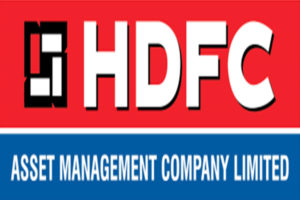

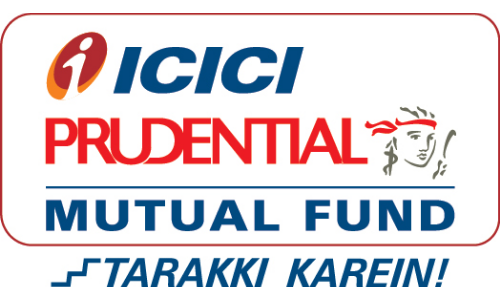
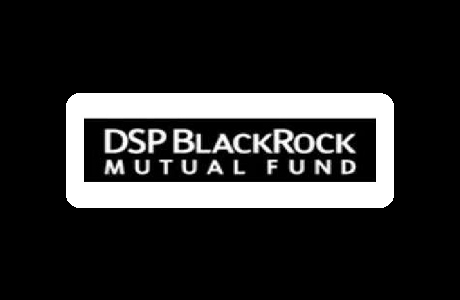
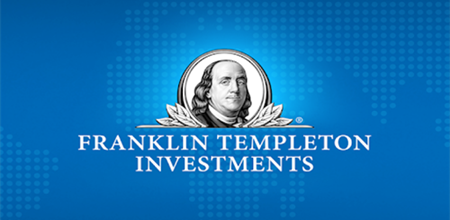








very informative